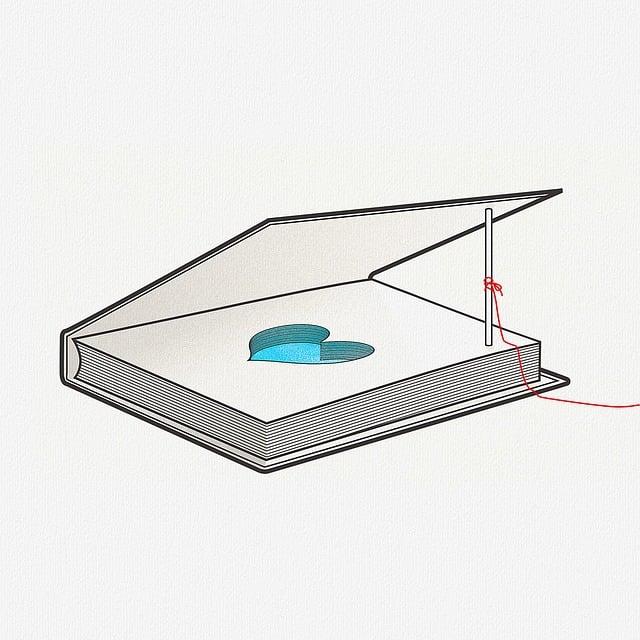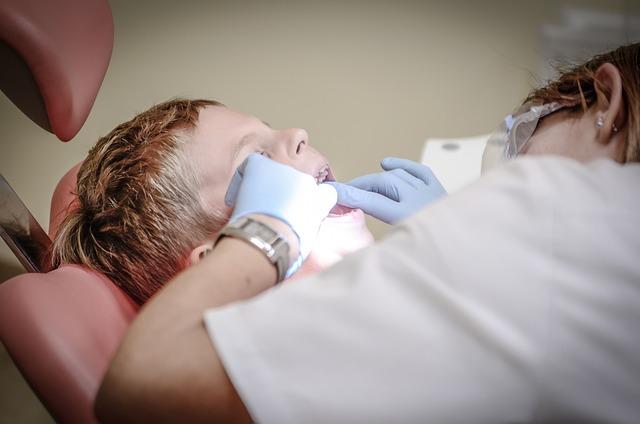If you have flat gums and are considering dentures, it’s crucial to have the right information. In this article, we’ll guide you through everything you need to know to make an informed decision. So, let’s dive in and explore the world of dentures for flat gums.
1. Understanding the Challenges of Flat Gums and Denture Selection
Gum recession is a common problem that many individuals face, and it can lead to challenges when selecting dentures. Understanding the specific issues and finding the right denture option is crucial for a comfortable fit and optimal oral health. Here are some key points to consider:
1. Causes of Flat Gums: Flat gums can be caused by various factors, including periodontal disease, aggressive tooth brushing, aging, and genetic predisposition. This condition can result in an inadequate foundation for dentures, making it harder to achieve stability and retention.
2. Consequences of Ill-Fitting Dentures: Choosing the wrong denture can exacerbate the problems caused by flat gums. Ill-fitting dentures can lead to instability, discomfort, difficulty in chewing and speaking, sore spots, and even bone loss. It is essential to address these challenges to ensure the best possible outcome.
3. Customized Denture Solutions: Fortunately, modern dentistry offers several options to overcome the challenges of flat gums. Your dentist may recommend implant-supported dentures, which use dental implants to provide stability and mimic the function of natural teeth. Another option is a specialized denture designed specifically for flat gums, utilizing advanced materials and techniques to enhance comfort and fit.
4. Seeking Professional Guidance: To ensure the best results, it is crucial to consult with an experienced dentist who can assess your unique oral condition and recommend the most suitable denture option. They will consider factors such as bone density, gum health, and personal preferences before suggesting a customized denture solution that addresses the challenges of flat gums.
Remember, understanding the challenges associated with flat gums and selecting the right denture option is essential for optimal oral health, comfort, and confidence. Don’t hesitate to seek professional guidance to ensure you make an informed decision and enjoy the benefits of a well-fitting denture that improves your quality of life.
2. Key Factors to Consider When Choosing Dentures for Flat Gums
Choosing dentures for flat gums requires careful consideration of certain key factors. Here are some important points to keep in mind:
1. Type of Dentures:
– Traditional Dentures: These are removable dentures that sit on the gums and are held in place by suction or adhesive.
- Implant-Supported Dentures: These are secured to dental implants surgically placed in the jawbone, providing greater stability and a more natural feel.
2. Material:
– Acrylic Dentures: These are made from a sturdy acrylic resin and are a cost-effective option. However, they may be bulkier.
– Flexible Dentures: These are made from a more pliable material that adapts well to the shape of the flat gums, offering increased comfort and a more natural appearance.
3. Fit and Comfort:
– Custom-Fit Dentures: These are individually crafted to fit your unique oral anatomy, ensuring optimal comfort and a secure fit.
– Immediate Dentures: These are made in advance and can be inserted immediately after tooth extraction. However, they may require more adjustments as the gums heal and change shape.
4. Denture Maintenance:
– Proper Cleaning: Regularly clean your dentures using a denture brush and mild cleanser to remove food particles and plaque.
– Regular Check-ups: Visit your dentist regularly to ensure your dentures are still fitting correctly and to address any potential issues.
By considering these key factors, you can make an informed decision when choosing dentures for flat gums, finding the option that best suits your needs, preferences, and oral health. Remember to consult with your dentist for personalized guidance and recommendations.
3. Different Types of Dentures: Which One is Best for Flat Gums?
There are several types of dentures available for individuals with flat gums. Finding the best denture option for you depends on various factors, including your specific oral needs and personal preferences. Here are some different types of dentures commonly recommended for individuals with flat gums:
1. Flexible Dentures: These dentures are made from a flexible, translucent material that mimics the appearance of natural gums. They provide a comfortable fit and are less likely to irritate sensitive gum tissues. The flexibility of these dentures allows for easier adaptation to the shape of flat gums, resulting in a better fit and improved functionality.
2. Implant-Supported Dentures: For individuals with flat gums who desire a more stable and secure solution, implant-supported dentures may be the best option. These dentures are attached to dental implants that are surgically placed into the jawbone. The implants provide a strong foundation for the dentures, eliminating issues with slippage or discomfort. Implant-supported dentures offer improved chewing efficiency and can help maintain the bone structure of the jawline.
3. Partial Dentures: Partial dentures are recommended when only a few missing teeth need to be replaced. These dentures are custom-made to fit the specific gaps in your smile and are secured to adjacent natural teeth using metal clasps or precision attachments. Partial dentures can be a suitable choice for individuals with flat gums as they can help restore the functionality and aesthetics of missing teeth while supporting the surrounding gum tissue.
Remember, consulting with a dental professional is crucial in determining the most suitable denture type for your specific needs. They will assess your oral health, consider your gum shape, and provide expert advice to ensure the best outcome for your denture experience.
4. Customization Options for Dentures to Accommodate Flat Gums
When it comes to dentures, one size definitely does not fit all. Flat gums can present a unique challenge in finding comfortable and secure dentures. Luckily, there are several customization options available to accommodate flat gums and ensure a perfect fit.
1. Adhesive pads: Adhesive pads are a popular choice for individuals with flat gums. These thin, cushioned pads can be placed on the base of the denture to provide extra comfort and stability. They act as a barrier between the denture and the gums, minimizing irritation and soreness.
2. Relining: Denture relining is another option for individuals with flat gums. During this procedure, a layer of cushioning material is added to the denture’s base to improve the fit. This adjustment helps distribute the pressure evenly, reducing the discomfort caused by flat gums.
3. Custom-made dentures: For those with particularly flat gums, custom-made dentures may provide the best solution. These dentures are meticulously crafted to fit the unique shape of the individual’s gums. By taking precise measurements and considering the specific contour of the gum line, custom-made dentures offer unmatched comfort and stability.
With the availability of these customization options, individuals with flat gums can find dentures that fit securely and comfortably. Whether opting for adhesive pads, denture relining, or custom-made dentures, it’s crucial to consult with a dental professional who specializes in denture fitting to ensure the best possible outcome.
5. The Importance of a Proper Denture Fit for Flat Gums
When it comes to wearing dentures, having a proper fit is essential, especially for individuals with flat gums. Here’s why a snug denture fit is so important:
1. Comfort: A denture that fits well ensures maximum comfort for the wearer. When dentures are properly fitted to flat gums, they don’t cause irritation, sore spots, or discomfort while chewing or speaking.
2. Stability: A snug fit helps provide stability to the denture. It prevents any slipping or shifting while eating, talking, or laughing, allowing individuals to go about their daily activities with confidence.
3. Improved Chewing Efficiency: With a correctly fitted denture, chewing becomes more efficient. This enables individuals to enjoy a wider variety of foods and ensures proper digestion, leading to overall better health.
4. Prevention of Bone Loss: A well-fitting denture supports the underlying jawbone, preventing bone loss over time. This helps maintain the shape of the face and avoids the sunken appearance that can occur with ill-fitting dentures.
5. Enhanced Speech: Flat gums can pose challenges for speech, but a proper denture fit can help improve speech clarity. Well-fitting dentures allow for proper tongue movement, ensuring clear and natural speech patterns.
Remember, if you have flat gums or are experiencing any discomfort with your dentures, it’s crucial to consult with your dentist or prosthodontist. They will ensure you have a well-fitted denture that meets your specific needs, promoting optimal comfort and oral health.
6. Achieving Comfort and Stability with Dentures for Flat Gums
Dentures are a popular option for replacing missing teeth, but individuals with flat gums often face additional challenges in achieving comfort and stability. Fortunately, there are several strategies that can help improve the fit and functionality of dentures for those with flat gums.
1. Adhesive Products: Using denture adhesive can provide added stability and prevent slipping of the dentures. Look for products that are specifically designed for flat gums, as they offer better adherence.
2. Soft Liners: Soft liners can be added to the inside of dentures to enhance comfort and improve the fit. These liners are made of a soft, pliable material that conforms to the shape of the gums, reducing irritation and sore spots.
3. Relining: Dentures may need to be relined periodically to accommodate changes in the shape and size of flat gums. This involves adding a new layer of material to the inside of the dentures, ensuring a snug fit and improved stability.
In conclusion, individuals with flat gums can achieve comfort and stability with dentures by utilizing adhesive products, soft liners, and regular relining. These strategies can greatly enhance the overall fit and function of dentures, allowing for a more enjoyable and confident smile.
7. Professional Guidance: Consulting with a Denturist for Flat Gums
When dealing with the issue of flat gums, seeking professional guidance from a denturist is highly recommended. A denturist is a trained dental professional who specializes in creating and fitting dentures. They possess the expertise and knowledge to assess your individual case and provide tailored solutions to address flat gums.
During a consultation with a denturist, they will thoroughly examine your mouth and gums to determine the extent of the flatness and any underlying causes. Their in-depth understanding of dental anatomy enables them to identify specific areas that may require additional support or adjustment. With their guidance, you can explore the various treatment options available to improve the appearance and function of your gums.
Consulting with a denturist also ensures that you receive personalized care and attention. They will take the time to explain the pros and cons of different approaches, empowering you to make informed decisions. Additionally, they may recommend additional measures, such as proper oral hygiene practices or specific denture materials, to optimize the health of your gums.
- Benefit from the expertise of a specialized dental professional.
- Thorough examination to assess the extent and causes of flat gums.
- Receive personalized care and attention.
- Explore different treatment options and make informed decisions.
- Receive recommendations for maintaining gum health.
Consulting with a denturist for flat gums can provide you with invaluable guidance on how to address this issue effectively. Their expertise and personalized care will help you achieve improved gum health and regain confidence in your smile.
8. Maintaining Oral Health with Dentures for Flat Gums: Tips and Recommendations
If you have flat gums and wear dentures, it’s important to take special care of your oral health to ensure a comfortable fit and longevity of your dentures. Here are some tips and recommendations to help maintain your oral health:
- Regular Cleaning: Clean your dentures thoroughly at least twice a day, using a soft-bristle brush or denture cleaner. This helps remove food particles and prevent plaque buildup.
- Oral Hygiene: Even with dentures, it’s crucial to maintain good oral hygiene. Brush your gums, tongue, and remaining natural teeth (if any) gently with a soft-bristle brush to remove bacteria and stimulate blood circulation.
- Mouth Rinse: Using an antimicrobial mouth rinse can help kill bacteria and keep your mouth fresh. Choose a rinse specifically designed for denture wearers to maintain a healthy oral environment.
- Regular Check-ups: Schedule regular dental visits to have your dentures examined and adjusted if necessary. A denture that fits well reduces gum irritation and can help prevent sore spots or infections.
- Proper Handling: Handle your dentures with care to avoid damage. Always clean them over a soft towel or water-filled sink to prevent accidents if they slip from your hands.
- Dietary Considerations: It’s essential to be mindful of the foods you eat with dentures. Cut food into smaller pieces, choose softer options, and avoid extremely hot or hard foods that may cause discomfort or damage your dentures.
Remember, maintaining oral health is crucial for denture wearers, especially those with flat gums. By following these tips and recommendations, you can ensure a comfortable fit, prolong the lifespan of your dentures, and enjoy a healthy smile for years to come.
In conclusion, when it comes to choosing dentures for flat gums, considering the right fit and materials is crucial. Opting for custom-made dentures and consulting with a trusted dentist can ensure comfort and functionality. Remember to prioritize your oral health and seek professional advice for the best possible outcome.





